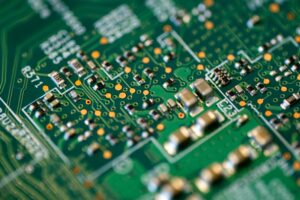APPLICATIONS OF TECHNOLOGY:
- Quantum calibration, noise tailoring, hybrid algorithms for quantum computing
BENEFITS:
- Higher execution efficiency
- Automatic identification of structurally similar circuits
- Stitching of parameters in hardware in real time
BACKGROUND:
Quantum circuits execute on a quantum computer and perform basic quantum operations on qubits. A quantum circuit consists of gates with fixed parameters and flexible parameters. Compiler transformations of quantum circuits are critical for optimizing their execution on quantum hardware. Typically, these compiler transformations occur on a classical computer with substantial computing and memory resources. The memory and computational complexity of the classical process linearly varies depending on the number of circuits, circuit width, and circuit depth. Currently, the classical process takes significant time (above 95% of the total process time), creating an efficiency bottleneck.
TECHNOLOGY OVERVIEW:
Scientists at Berkeley Lab have developed a new technique for improving the efficiency of quantum circuit execution, called Hardware-assisted parameterized execution. This approach identifies and selectively compiles structurally-similar circuits from a batch of circuits, separates the quantum circuits from their parameters in the classical computer, and re-attaches them while executing on the control system hardware. This technique significantly reduces compilation time and adds minimal runtime overhead on resource-constrained control systems.
This technique can be used for any quantum algorithm consisting of batches of structurally similar circuits. Especially as quantum computers scale to a larger number of qubits, this method can greatly improve efficiency for different operations. Additionally, this invention can be easily adapted to be applied to hybrid algorithms (ie. quantum algorithms that contain classical-quantum loops).
DEVELOPMENT STAGE:
Pilot Scale
PRINCIPAL INVESTIGATORS:
Abhi Rajagopala, Neelay Fruitwala, Akel Hashim, Kasra Nowrouzi, Gang Huang, Yilun Xu, Irfan Siddiqi
IP Status:
Patent pending
OPPORTUNITIES:
Available for licensing or collaborative research
